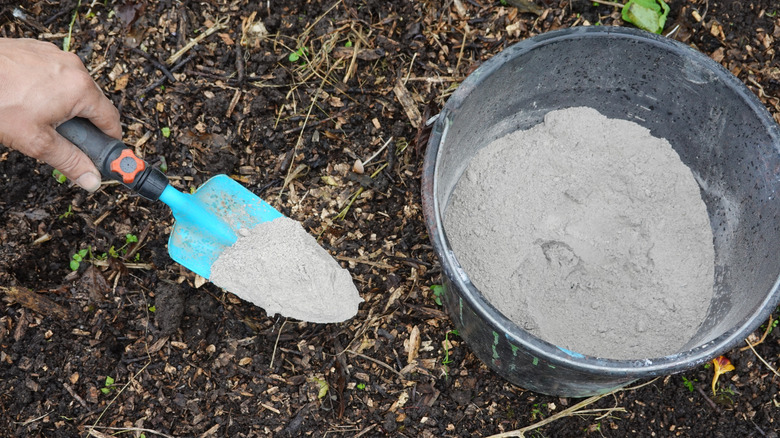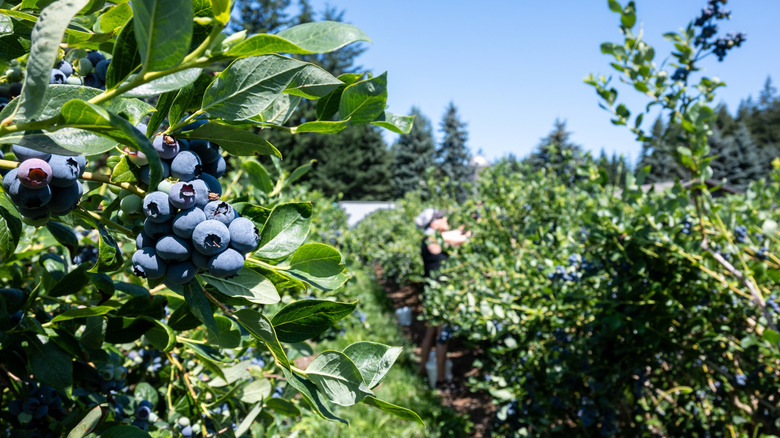Why You Should Avoid Using Wood Ash As Fertilizer For Your Blueberries
We may receive a commission on purchases made from links.
When used correctly, wood ash can be good for garden soil. For example, fireplace ashes can work as a DIY tomato fertilizer that gives soil hearty helpings of plant-supporting calcium and potassium, plus smaller doses of phosphorus, magnesium, and zinc. Unfortunately, many gardeners don't realize that burned-up wood has a pH level between 10.0 and 12.0. This means it can easily make soil too alkaline for acid-loving plants such as blueberries. In general, blueberries like a pH level of 4.0 to 5.0. If the soil surrounding your blueberries has a pH level above 5.5, the plants can't extract the nutrients they need. As a result, their leaves don't make enough chlorophyll, and their growth grinds to a halt.
So, why is wood ash okay for tomatoes but not blueberries? Tomatoes can benefit from wood ash fertilizer because they don't mind neutral-pH soil. Soil tends to be mildly acidic in many parts of the United States, including the East Coast and the Pacific Northwest. In most cases, lowering this soil's pH a notch or two won't bother tomatoes because it will come out neutral or ever so slightly acidic. If the original soil is in the neutral range, adding wood ash might make it alkaline, which can harm tomato plants. That's why it's important to test your garden's pH before putting plants in the soil. The Hslgove 2-in-1 soil tester will measure your soil's pH and moisture levels in minutes. As a rule of thumb, don't add wood ash to soil with a pH near 7.0 unless you're growing plants that demand alkaline conditions.
Better DIY fertilizers for blueberries
If you want to nourish your blueberry bushes with a homemade fertilizer, choose one that won't raise their soil's pH level. Coffee grounds are a good choice because they provide nitrogen, which blueberries need in large quantities. These plants usually don't need infusions of other nutrients. Moreover, coffee grounds feed earthworms and plant-supporting soil microbes while repelling rabbits and slugs.
If you're not a coffee drinker, don't fret: There are lots of other ways to make blueberry-friendly fertilizer. Try brewing fruit plant compost tea with Martha Stewart's recipe. The process involves soaking a small amount of compost in water, then watering your fruit plants with this gentle nutrient booster every other week. If you'd like the tea to make the soil a tad more acidic, try using rainwater in your recipe. Compost tea's nutrients and microorganisms can support plant growth and even increase fruit production.
Looking for a way to use ash from wood stoves, fireplaces, or fire pits? If you grow blueberries in a yard with acidic soil, try using the ash around plants that crave a slightly alkaline growing environment. Kale, cabbage, and pole beans are a few edible plants that like a higher pH level. Or, use the ash to change the color of your hydrangeas.

